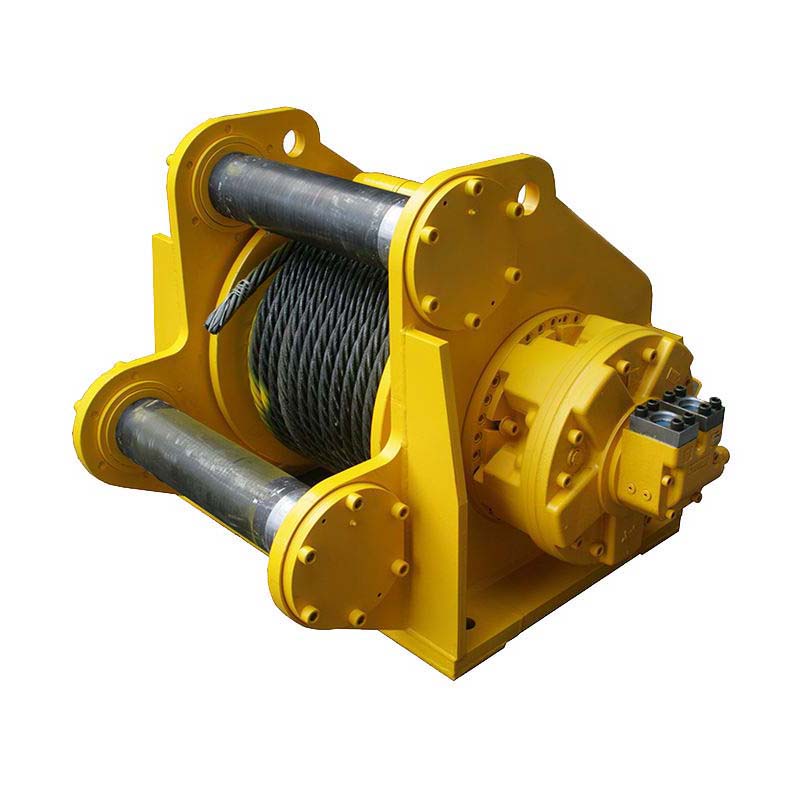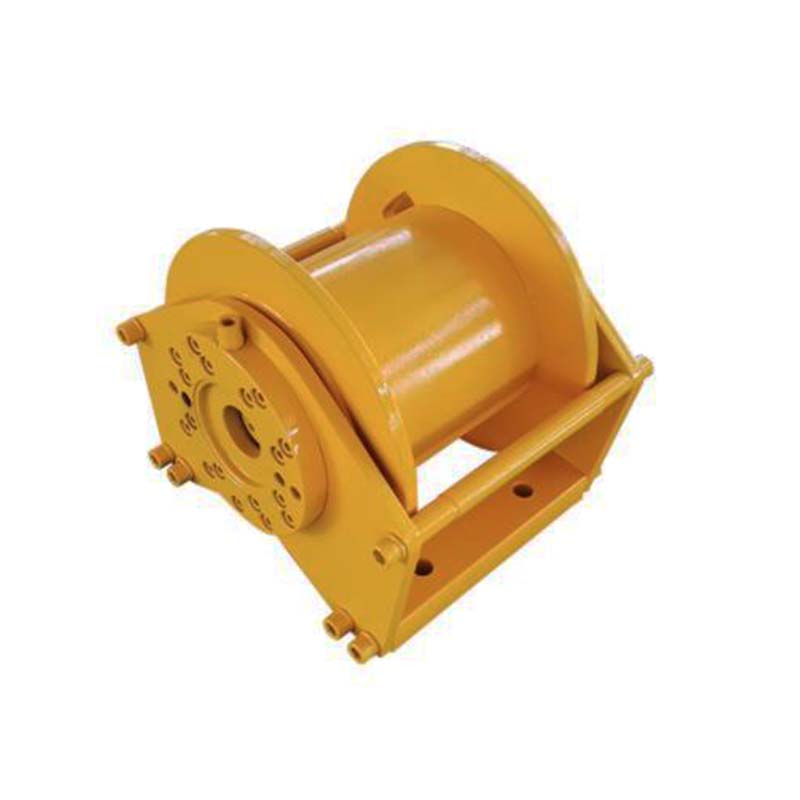Hydraulic Winches: Working Principle Advantages and Comparison with Electric Winches
Introduction:
hydraulic winches are widely used in various industries, including construction, mining, offshore drilling, and heavy industrial applications. They have become the preferred choice for many due to their durability, high load capacity, quick power transfer, and efficiency. In this article, we will discuss the working principle of Hydraulic Winches, their advantages over other types of winches, and the difference between hydraulic and electric winches.
Working Principle of Hydraulic Winches:
Hydraulic winches operate on the principle of converting hydraulic pressure into mechanical energy for power transfer. The winch comprises a hydraulic motor, hydraulic system, clutch, and brake system. Hydraulic pressure is supplied to the hydraulic motor that drives the winch drum. The energy is transferred to the cable drums through the use of a planetary gear system and a hydraulic pump, which convert the hydraulic pressure into rotational motion. The winch cable is wrapped and unwrapped around the cable drums when the winch drum rotates, enabling the pulling/pushing of an object.
Advantages of Hydraulic Winches:
Hydraulic winches have numerous advantages over other types of winches. Firstly, they are much more durable and long-lasting compared to other winches in the market. They are built to withstand harsh environments, high outputs, and constant usage. Secondly, hydraulic winches offer a more efficient and quick power transfer, which is important when pulling or pushing heavy loads. They are also known for their high pulling capacity, which enables them to pull loads of up to 50,000lbs. Thirdly, hydraulic winches operate quietly and emit low levels of vibration, which reduces operator fatigue and provides a comfortable working environment. Hydraulic winches are also easy to maintain and require very little upkeep.
Hydraulic vs. Electric Winches:
The choice between hydraulic and electric winches depends on the intended use, the load capacity needed, and the environmental conditions of the site where the winch will be used. Hydraulic winches are better than electric winches when it comes to high load capacity, speed, efficiency, and durability. They are often recommended for heavy-duty applications, where the load being pulled exceeds 12,000lbs. Hydraulic winches are also favored in harsh outdoor environments, such as offshore, mining, and heavy industrial applications. Electric winches, on the other hand, are better suited for light-duty applications and are preferred for indoor use, such as in construction sites and workshops. Electric winches are also quieter and require less maintenance than hydraulic winches.
Conclusion:
In conclusion, hydraulic winches are a reliable and durable option that should be considered when looking for high-load capacity winches for heavy-duty applications. They operate on the principle of converting hydraulic pressure into mechanical energy for power transfer, which makes them efficient and quick when pulling or pushing heavy loads. Compared to electric winches, hydraulic winches offer a higher load capacity, speed, and durability, which makes them ideal for harsh outdoor environments. However, the choice between the two types of winches depends on the intended use, load capacity, and environmental conditions of the site where they will be used.
Saivs brand
- Z1S6 Z1S10 Z1S10P Z1S10P1-30/V Rexroth hydraulic Check valve
- Gear pumps series NSH32M
- Mini Electric Material Handling
- ms11 / mse11 low speed large torgue motor made in china
- Aerial work platform outrigger hydraulic cylinder
- rexroth 4wrke16 4wrke25 series electro-hydraulic proportional directional valve
- S10A Rexroth type hydraulic check valve
- AZPJ series Rexroth Gear Pumps
- Hand Pump HP-08/10/16
- AZPF series Rexroth Gear Pumps

